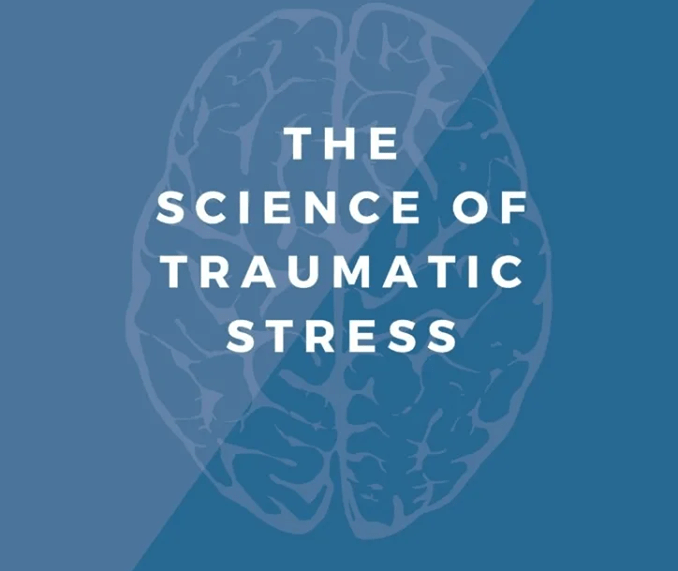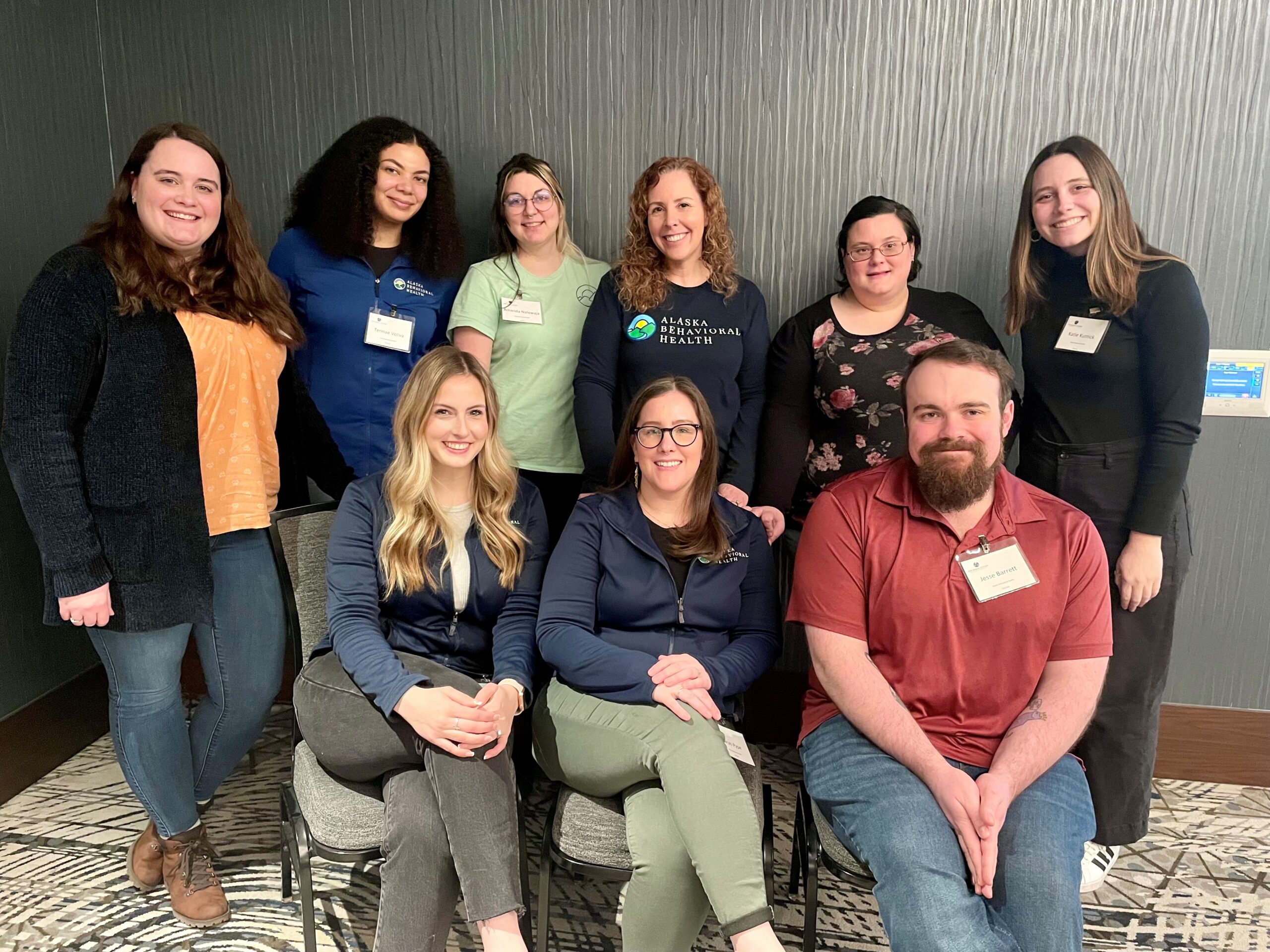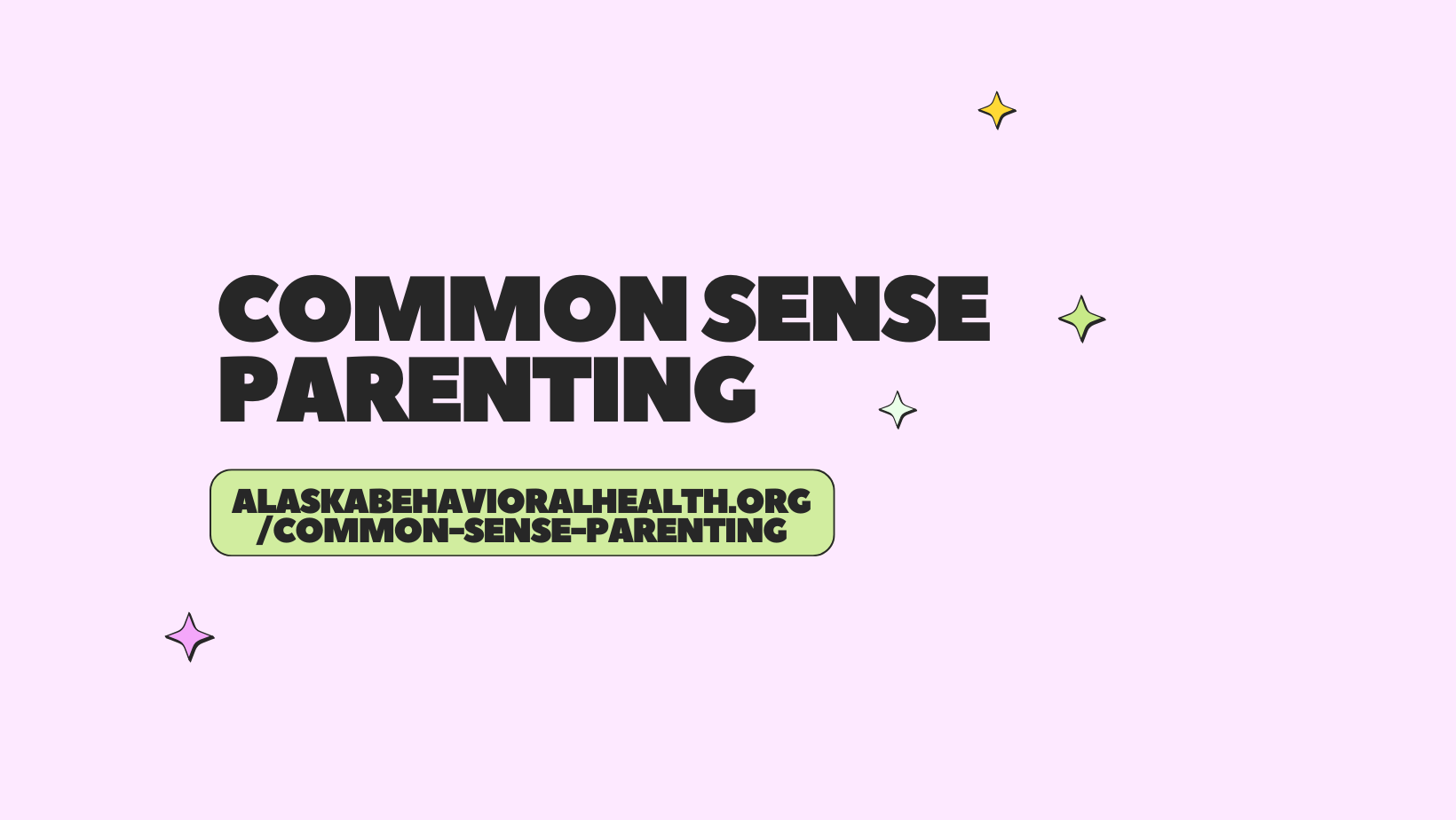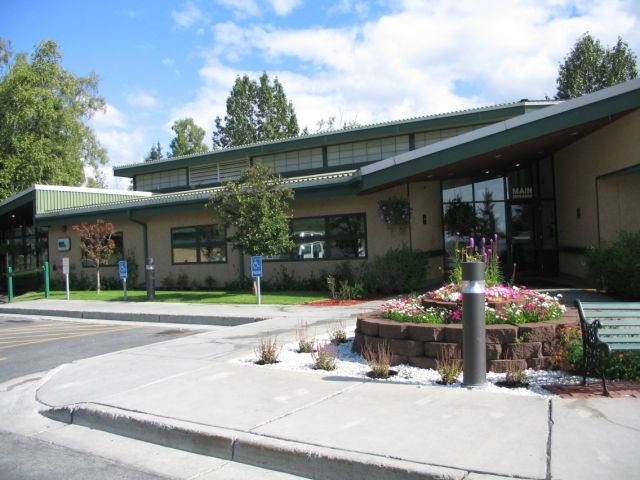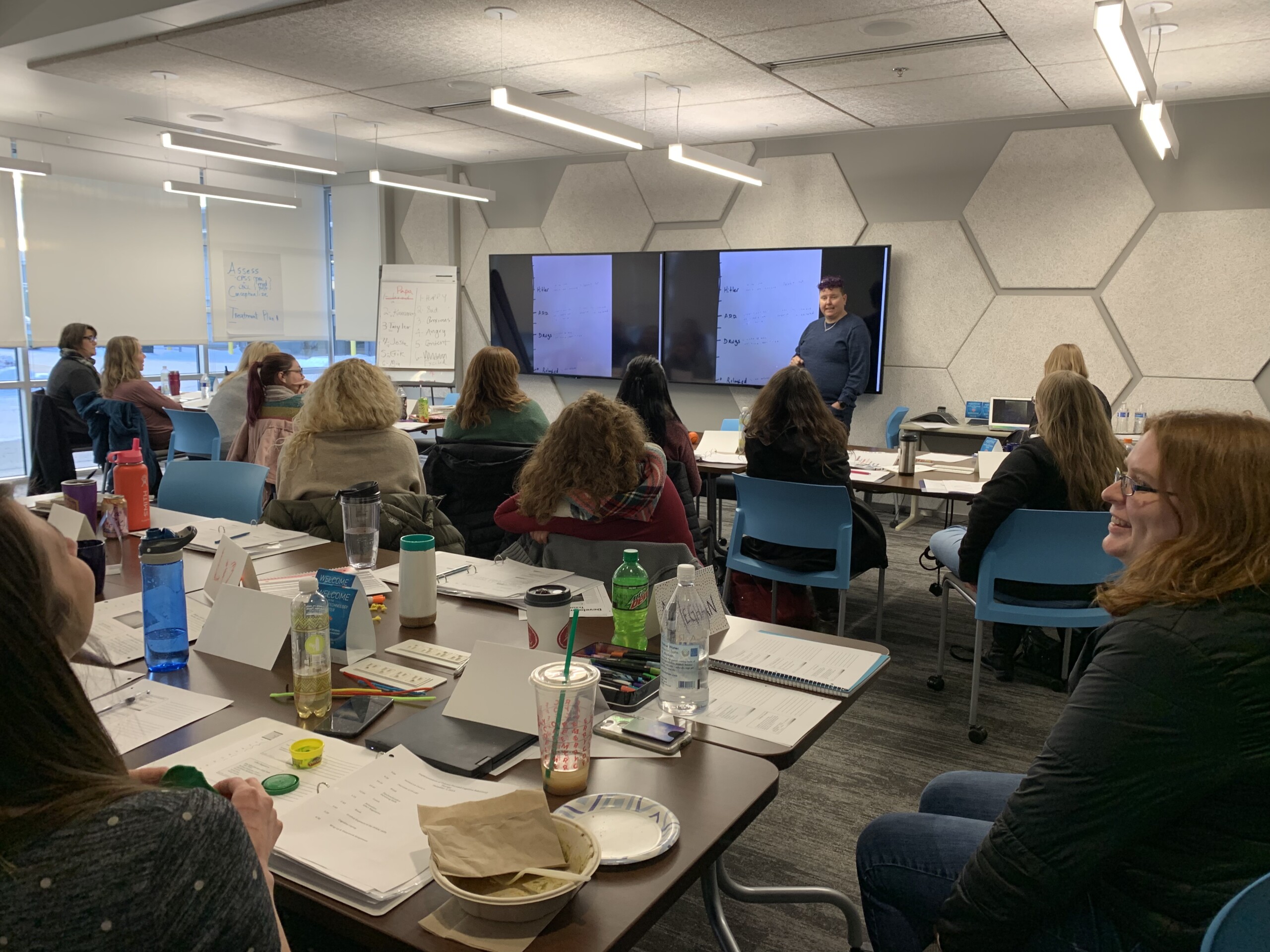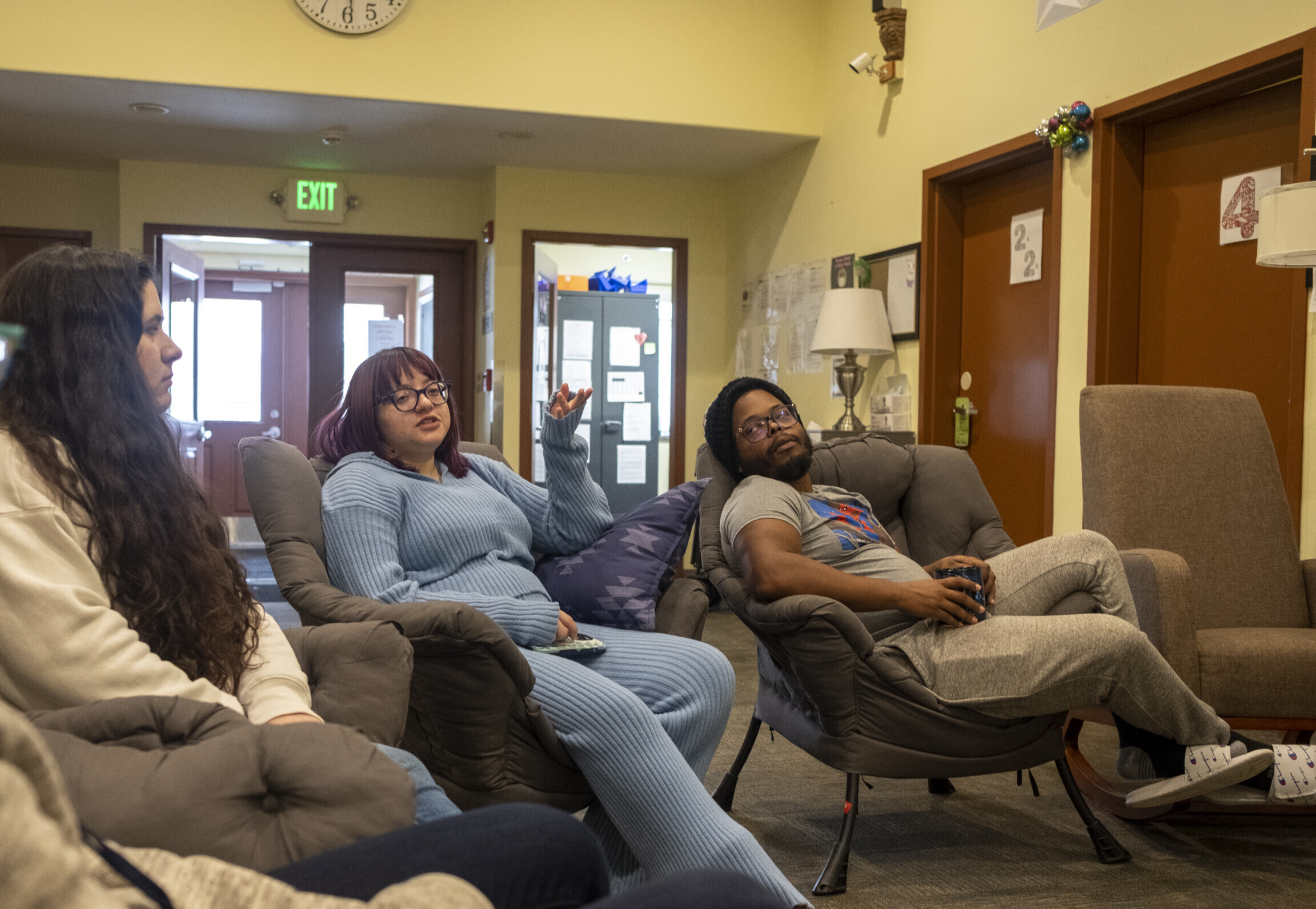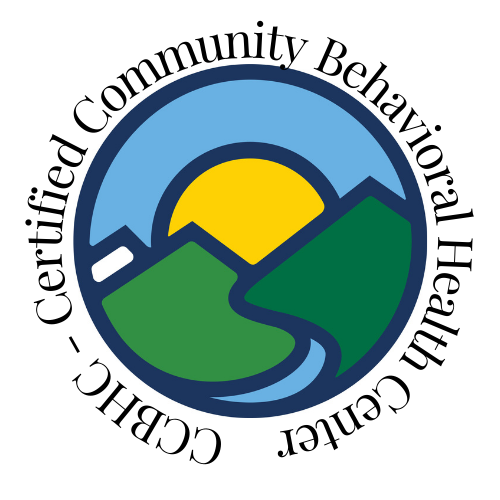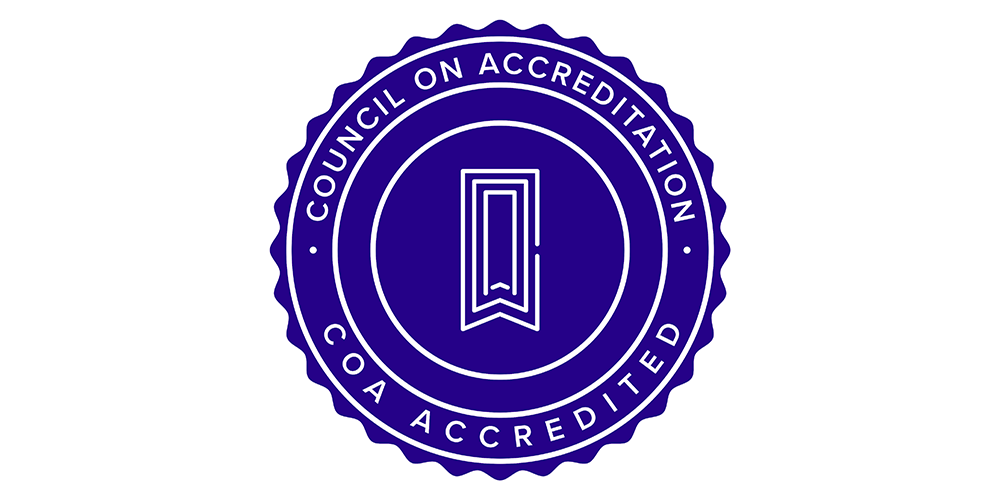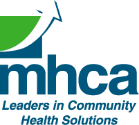Alaska Behavioral Health and The Alaska Child Trauma Center provide training in trauma-informed care through partnerships with the National Childhood Traumatic Stress Network.
The Alaska Child Trauma Center at Alaska Behavioral Health is a treatment integration and adaptation center (Category III) for the SAMHSA-supported National Child Traumatic Stress Network (NCTSN). We joined the network in 2005 and are Alaska’s only NCTSN center. The Alaska Child Trauma Center is a regional training hub for the SAMHSA-supported National Complex Trauma Training Network, a certified ARC Training Site.
In 2023, Alaska Behavioral Health earned the additional designation of a SAMHSA-supported NCTSN (Category II) Rural Child Trauma Center, one of 35 nationally certified treatment and service adaptation (TSA) Centers that provide national expertise for specific types of traumatic events, population groups, and service systems, and support the specialized adaptation of effective evidence-based treatment and service approaches for communities across the nation.
Scheduled trainings are included on our Community Events calendar.
Most training opportunities can be offered virtually or in-person and are free of charge to participants with grant support.
Peer Support
Alaska Behavioral Health offers introductory and advanced classes form people with lived experience with mental illness and substance use who are interested in working as peer support professionals. Learn more on our peer support page.
Common Sense Parenting®
Our parent family navigator offers parenting classes using the Common Sense Parenting® (CSP) curriculum. CSP provides parents and caregivers with logical strategies and easy-to-learn techniques to address issues of communication, discipline, decision-making, relationships, self-control and school success Click here for more information.
Trauma 101
Trauma 101 training focuses on understanding how trauma impacts the body and the brain, how people adapt to trauma, and what we can do as providers, caregivers and community members to support recovery and resiliency. The Trauma 101 training is not a training on a specific type of intervention, but is focused on how we can use a better understanding of trauma to be trauma-informed.
Course options include a half day or full day in-person training, as well as a short form 1-hour Intro to Trauma Informed Care.
Trainers: Marissa Hanson, Mara Hill, Lindsay Coffey, Amanda Nalewaja
QPR (Question, Persuade, Refer) Suicide Prevention
In this 1 hour training, participants learn how to Question, Persuade and Refer someone who may be suicidal. Common causes of suicidal behavior will be discussed, including warning signs to look for. Prevention strategies, along with resources on how to help yourself as well as someone in crisis are also covered.
Trainer: Quavon Bracken
Mental Health First Aid ®
Mental Health First Aid® (MHFA) is an full day course that teaches you how to identify, understand and respond to signs of mental illnesses and substance use disorders. The training gives you the skills you need to reach out and provide initial help and support to someone who may be developing a mental health or substance use problem or experiencing a crisis.
Please note: MHFA is an introductory training, meant for students and individuals without clinical mental health training. MHFA is designed to help community members feel more equipped to address mental health situations they encounter in everyday life. When offered via Zoom, this course requires 2 hours of online pre-work requirements to participate in the training. In-person training covers all materials during the class.
Trainers: Taylor Waldner, Brandy Salvatore, Shannon Geese
Next session is 9:00 am to 4:00 pm on April 24, 2024, at the BP Energy Center (in person training).
Mental Health First Aid 4/24/24
Submit this form to register for Mental Health First Aid April 24, 2024 from 9am-4pm at the BP Energy Center in Anchorage.
ARC (Attachment, Self – Regulation, and Competency) Framework
The Attachment, Self-Regulation and Competency or ARC framework (Kinniburgh & Blaustein, 2005) is a natural next step for individuals and organizations who want to go beyond Trauma 101 in providing trauma-informed care to their service recipients.
ARC is a flexible, components-based intervention developed for children and adolescents (3-18) who have experienced complex trauma, along with their caregiving systems. ARC is designed as both an individual level clinical intervention, to be used in treatment settings for youth and families, and as an organizational framework, to be used in service systems to support trauma-informed care.
ARC interventions can be helpful for providers in both clinical and non-clinical settings including:
- Early Intervention/Prevention
- Schools
- Domestic Violence and Homeless Shelters
- Substance Abuse Treatment Programs
- Inpatient and Acute Care Settings
- Residential Treatment Programs/Group Homes
- Juvenile Justice Programs
- Child Welfare Systems
- Foster Care Training Programs and More!
Training format: 2 full days in person or 4 weekly (3 hour) sessions held virtually
Learn more about ARC Training and implementation consultation
Trainers: Mara Hill, Marissa Hanson
Our next Virtual ARC training series will begin on Tuesday, December 5th, 2023 via Zoom. To register for this training, click here.
Trauma – Focused Cognitive Behavioral Therapy
Trauma focused cognitive behavioral therapy is an evidence-based psychotherapy that aims at addressing the needs of children and adolescents (3-18) with Post-Traumatic Stress Disorder. Training participants must be Master’s level therapists in order to be eligible for training in this intervention.
Alaska Advanced Trauma Training Institute
The Alaska Advanced Trauma Training Institute is hosted annually by the Alaska Child Trauma Center with support of the State of Alaska, Division of Behavioral Health.
Registration is now open! Our 11th annual conference will be held Thursday & Friday, May 9th & 10th, 2024 at the Dena’ina Civic and Convention Center in downtown Anchorage. You can find our registration page HERE.
Customized Training
Speaking engagement requests around customized trauma topics to include agency staff trainings, workshop and keynote presentations at professional conferences, as well as event panel experts on trauma.
For more information on customized trainings, please email trainingteam@akbh.org

For more information on any of these training opportunities, please fill out the training request form below. You can also email us at trainingteam@akbh.org.

